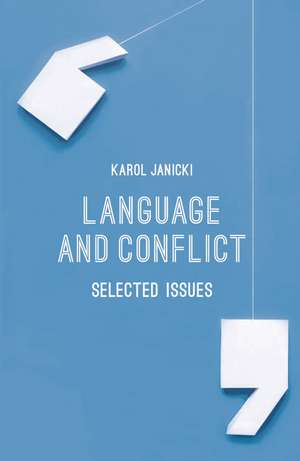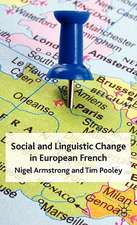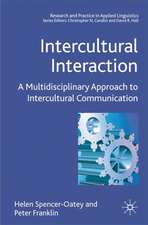Language and Conflict: Selected Issues
Autor Karol Janickien Limba Engleză Paperback – 25 mar 2015
Preț: 236.66 lei
Preț vechi: 279.30 lei
-15% Nou
Puncte Express: 355
Preț estimativ în valută:
45.28€ • 47.41$ • 37.47£
45.28€ • 47.41$ • 37.47£
Carte disponibilă
Livrare economică 17-31 martie
Preluare comenzi: 021 569.72.76
Specificații
ISBN-13: 9781137381408
ISBN-10: 113738140X
Pagini: 244
Dimensiuni: 138 x 216 x 15 mm
Greutate: 0.64 kg
Ediția:2015
Editura: Bloomsbury Publishing
Colecția Red Globe Press
Locul publicării:London, United Kingdom
ISBN-10: 113738140X
Pagini: 244
Dimensiuni: 138 x 216 x 15 mm
Greutate: 0.64 kg
Ediția:2015
Editura: Bloomsbury Publishing
Colecția Red Globe Press
Locul publicării:London, United Kingdom
Caracteristici
Provides useful 'hands-on' tips and further reading recommendations for the undergraduate who wants to take their studies further
Notă biografică
Karol Janicki is a Professor in the Department of Foreign Languages at the University of Bergen, Norway
Cuprins
PrefaceNote for teachersIntroduction1. Mixing words and other things: A reason for conflict2. Framing: How we talk differently about the same thing3. Emotions: How words can influence our reasoning4. Descriptions, inferences and evaluations: Different levels of abstraction and conflict5. Euphemisms, dysphemisms, and political correctness: How we can get misdirected6. Communicative competence: How we may misinterpret other people's linguistic behaviour7. Meaning: How conflicts revolve around the definitions of words8. Linguistics for peace educationConclusion: A trip to the MatsésGlossaryReferencesIndex.
Recenzii
Janicki's text covers a lot of areas of inquiry, from cognitive linguistics to political communication and from pragmatics to psychology and philosophy of language. The discussion is lucid, thought-provoking and reader-friendly. Anyone seeking to have a deep understanding of those extraordinary aspects of ordinary language would find this book inviting and revealing. Those new to the field of language studies will give the book a big thumbs up for its clear explanations of thick theories supported by numerous real-life examples.
Each of the volume's eight chapters contains a real story . that works as a meaningful and tangible illustration of the key concepts, followed by a section entitled 'Summary and practical advice' . Recommendable as an introductory text for students in linguistics and communication, also scholars of linguistics and nonspecialists will certainly find it a valuable reading. Its attentive consideration of significant aspects involving language use and the appearance/avoidance of conflicts makes this work really compelling and thought-provoking.
Each of the volume's eight chapters contains a real story . that works as a meaningful and tangible illustration of the key concepts, followed by a section entitled 'Summary and practical advice' . Recommendable as an introductory text for students in linguistics and communication, also scholars of linguistics and nonspecialists will certainly find it a valuable reading. Its attentive consideration of significant aspects involving language use and the appearance/avoidance of conflicts makes this work really compelling and thought-provoking.
















